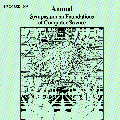$\mathsf{QMA}_1$ is $\mathsf{QMA}$ with perfect completeness, i.e., the prover must accept with a probability of exactly $1$ in the YES-case. Whether $\mathsf{QMA}_1$ and $\mathsf{QMA}$ are equal is still a major open problem. It is not even known whether $\mathsf{QMA}_1$ has a universal gateset; Solovay-Kitaev does not apply due to perfect completeness. Hence, we do not generally know whether $\mathsf{QMA}_1^G=\mathsf{QMA}_1^{G'}$ (superscript denoting gateset), given two universal gatesets $G,G'$. In this paper, we make progress towards the gateset question by proving that for all $k\in\mathbb N$, the gateset $G_{2^k}$ (Amy et al., RC 2024) is universal for all gatesets in the cyclotomic field $\mathbb{Q}(\zeta_{2^k}),\zeta_{2^k}=e^{2\pi i/2^k}$, i.e. $\mathsf{QMA}_1^G\subseteq\mathsf{QMA}_1^{G_{2^k}}$ for all gatesets $G$ in $\mathbb{Q}(\zeta_{2^k})$. For $\mathsf{BQP}_1$, we can even show that $G_2$ suffices for all $2^k$-th cyclotomic fields. We exhibit complete problems for all $\mathsf{QMA}_1^{G_{2^k}}$: Quantum $l$-SAT in $\mathbb{Q}(\zeta_{2^k})$ is complete for $\mathsf{QMA}_1^{G_{2^k}}$ for all $l\ge4$, and $l=3$ if $k\ge3$, where quantum $l$-SAT is the problem of deciding whether a set of $l$-local Hamiltonians has a common ground state. Additionally, we give the first $\mathsf{QMA}_1$-complete $2$-local Hamiltonian problem: It is $\mathsf{QMA}_1^{G_{2^k}}$-complete (for $k\ge3$) to decide whether a given $2$-local Hamiltonian $H$ in $\mathbb{Q}(\zeta_{2^k})$ has a nonempty nullspace. Our techniques also extend to sparse Hamiltonians, and so we can prove the first $\mathsf{QMA}_1(2)$-complete (i.e. $\mathsf{QMA}_1$ with two unentangled provers) Hamiltonian problem. Finally, we prove that the Gapped Clique Homology problem defined by King and Kohler (FOCS 2024) is $\mathsf{QMA}_1^{G_2}$-complete, and the Clique Homology problem without promise gap is PSPACE-complete.
翻译:暂无翻译




